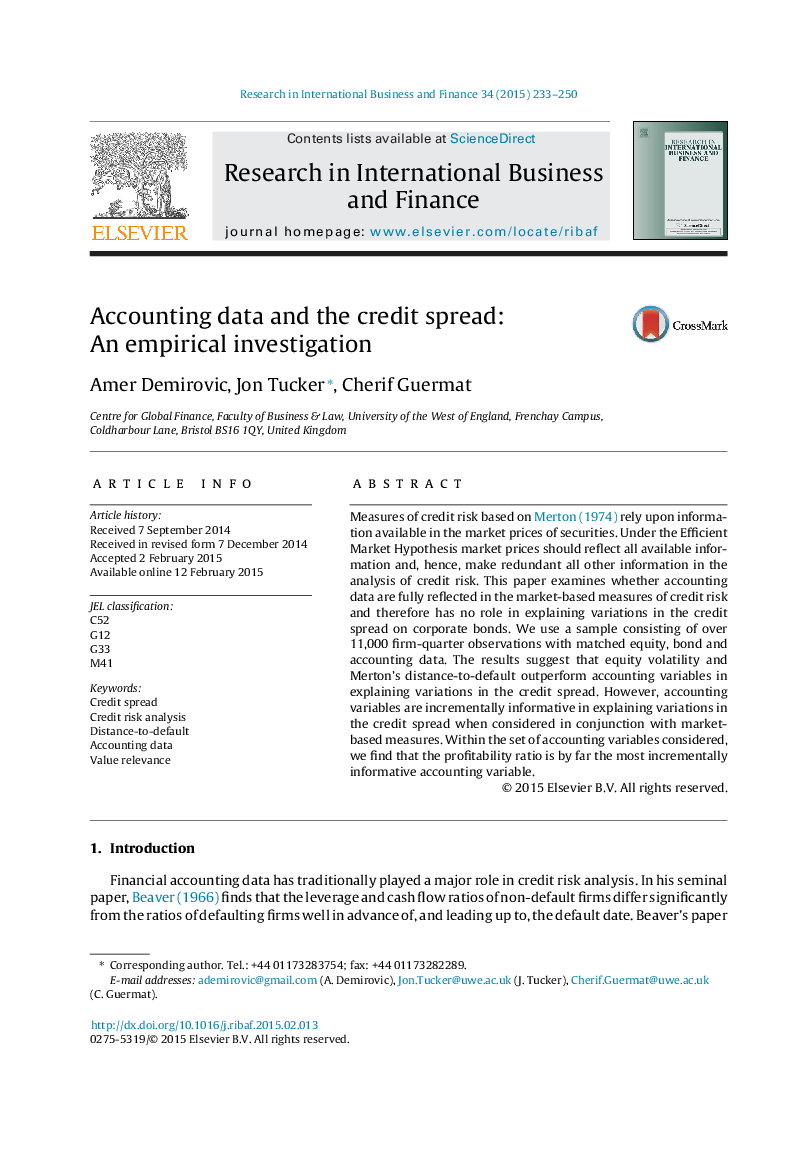| Article ID | Journal | Published Year | Pages | File Type |
|---|---|---|---|---|
| 1003110 | Research in International Business and Finance | 2015 | 18 Pages |
Measures of credit risk based on Merton (1974) rely upon information available in the market prices of securities. Under the Efficient Market Hypothesis market prices should reflect all available information and, hence, make redundant all other information in the analysis of credit risk. This paper examines whether accounting data are fully reflected in the market-based measures of credit risk and therefore has no role in explaining variations in the credit spread on corporate bonds. We use a sample consisting of over 11,000 firm-quarter observations with matched equity, bond and accounting data. The results suggest that equity volatility and Merton's distance-to-default outperform accounting variables in explaining variations in the credit spread. However, accounting variables are incrementally informative in explaining variations in the credit spread when considered in conjunction with market-based measures. Within the set of accounting variables considered, we find that the profitability ratio is by far the most incrementally informative accounting variable.
